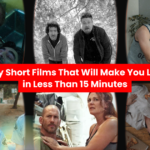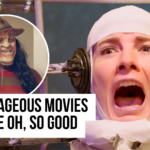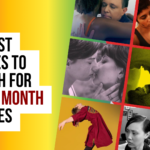Jonathan Rowan always had the creative spark but never imagined his passion would take him to a place like filmmaking. From undergrad and beyond, he embraced this newfound craft, quickly becoming one of Reveel’s most prolific directors! We had the chance to chat with him about his fascinating life and passion for storytelling, taking it all the way back to when it first began.
The following interview has been edited for clarity and length.
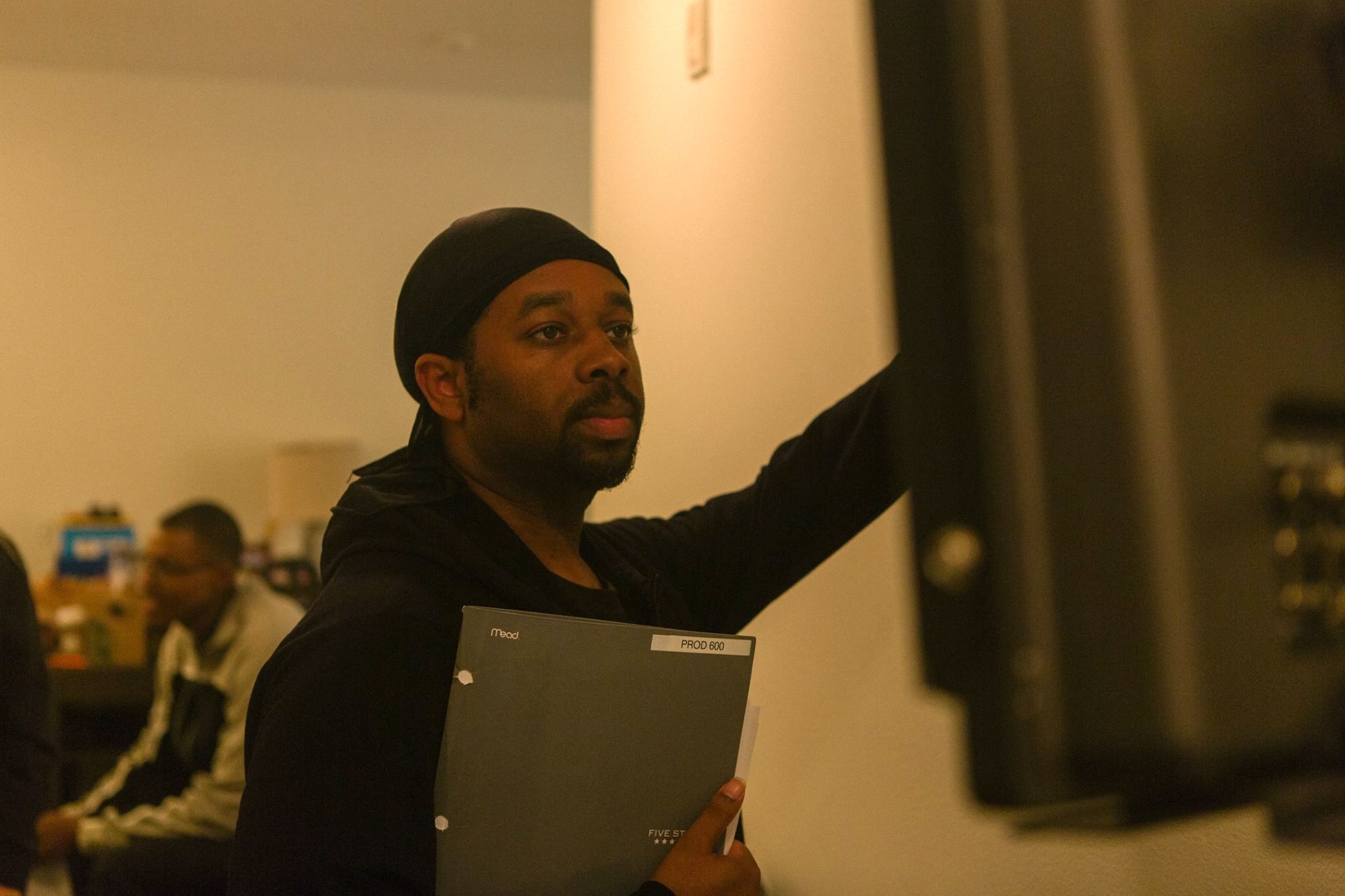
1. How did you get into filmmaking?
Jonathan: Well, I got into filmmaking when I was in undergrad. Completely left field for me as I was originally wanting to go into law. I was going to be an entertainment lawyer, and that’s what my undergraduate major was. It was in pre-law, and also political science with a minor in dance. Along my journey, I had a job on campus where I worked in the media department and I was trained on studio camera equipment, lighting, editing for clients, and different live events on campus.
After the first year of working there, I noticed there was a lot of equipment not being utilized and I wanted to take advantage of that. So, I started making my own content. I started doing little spec commercials and then did music video remakes. From that point on, I picked up momentum and started getting more recognition on campus. I was soon coined the nickname “JR The Supastar” on campus because of my artistry and productions.
My mentor Michael Mimms, who was also my employer at the time, gave me the challenge of creating a film. I already had a background in writing short stories from middle school so I was a pretty strong and confident writer, but I had never written a script prior.
When I completed my first feature script, I let a few of my co-workers, who are indie filmmakers, read it and give me advice on it. That turned into my first feature which is Slasher, available for streaming on Reveel now.
Slasher took off for me. The feature scored praise and recognition from various film festivals and audience members during public screenings. This reinforced belief within myself as an artist and that I could really pursue this creative journey. And so I decided to proceed with my creative journey in LA. I applied to film school and by the grace of God got accepted into Loyola Marymount University.
2. You are a prolific filmmaker. How have you grown specifically as a director over time?
Jonathan: I’ve grown a lot from Slasher to Man Down. Just the scope of the film. One thing everybody pays attention to is the look of your film. I’m a visual storyteller and during my time in film school, a few of my earlier projects didn’t allow dialogue. I had to learn how to tell a story without speaking and I feel like that is very important. Now with my current projects, if a scene doesn’t need any dialogue, I’m not going to write it. We’re going to express it instead with emotion, body language, or visual imagery.
I was growing on all fronts as a filmmaker. In between undergrad and grad school, I was a substitute teacher. I taught school for about three years. And in that time, I learned how to speak and be very patient in that journey dealing with children. I discovered that I had a keen skill for leadership and dealing with my students aided in my passion for working with actors.
I began singing, dancing, and acting at the age of 4. I would eventually shift from being talent in the foreground to transitioning behind the scenes. I feel like I got to control the board more creatively.
In my earlier days as a guerrilla filmmaker, I was doing everything. I was DPing and directing simultaneously. I just didn’t know the difference. Once I went to film school, I started learning that each of these is a separate role. And that’s one thing you don’t know a lot of the time when you’re starting. Since film school, I discovered that I enjoy directing more but if I had to put it in order, it would be director, writer, and producer.
3. How did your background in law contribute to your career in the film industry?
Jonathan: As a creative in Louisville, Kentucky, opportunities weren’t available like how they are now. Being a creative was a distant dream, especially for a young black boy. People would say, “That’s a one in a million chance. You live here. They’re out there and no one’s gonna come here to discover you.” I was always told, “No one’s gonna come here and find you. You gotta go out and make yourself available.” So, I put that into my creative journey.
Once I graduated high school, I originally didn’t plan to go to college. I just wanted to be a musical artist. I was a singer and dancer. I wanted to be like Chris Brown, Ginuwine, and Usher. One of those types of artists who sing, dance, and put out creative music videos but that dream wasn’t taking off for me.
In my high school years, I started getting into debate clubs and politics. At the time, Hurricane Katrina was happening and such. So, a lot of conversations on race and relations were happening in the classroom. I started becoming an advocate because I saw people around me that called themselves friends and allies, whose words and actions didn’t match being a friend and ally.
4. You have worn many hats on film productions. Is there a role you struggle with?
Jonathan: The role I found that I just didn’t gel with was 1st AC. It just makes me nervous because pulling focus is not easy. I needed time to figure out pulling focus and then people are not patient, so they get mad, have attitudes, and say sarcastic things to you, kind of heckling you a little bit. It just makes me a little uncomfortable because this is not something I mastered right off the bat and people are making you feel like you’re not good enough. So, that role makes me feel uncomfortable, but everything else, I feel confident enough to perform.
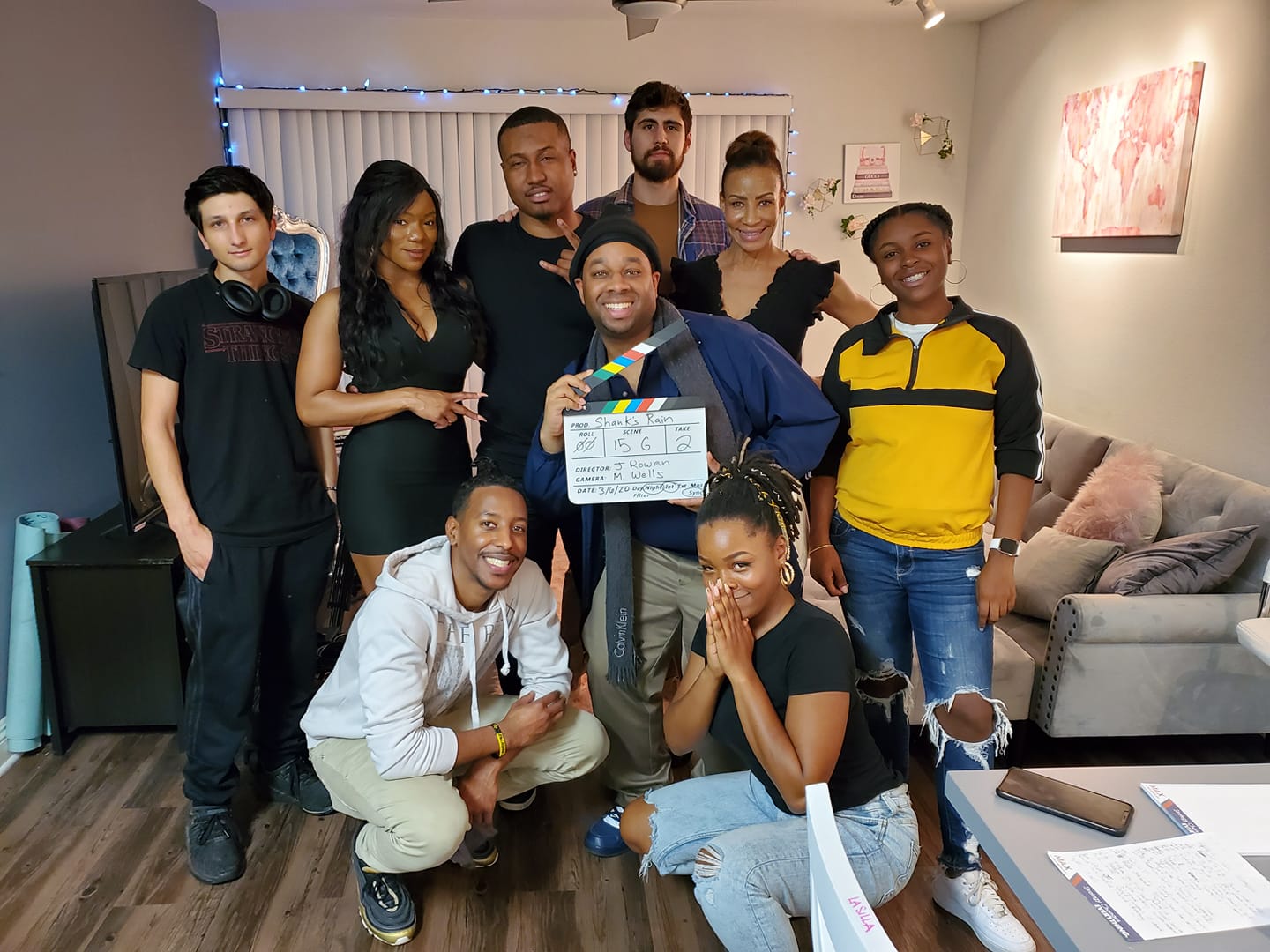
5. How do you approach casting and bringing out the best performances on set?
Jonathan: I’m all about raw, real emotion. I was taught early on in school to make things authentic. Things translate better on screen when they’re authentic. I want things to come from a real place, even if it’s not your experience as the character.
I practice different methods of being trained as a director. One of my favorites is substitution. I like to have my actors do substitution, which means finding something that is triggering to get you to a certain emotion or feeling and then starting from there.I do those exercises even in the casting room. I just have conversations and pull out uncomfortable things from their lives or from something. And I kind of go off if they’re willing to be open about it or share or how comfortable they are. If they’re not comfortable with emotion, then drama is not for them. Because you have to really sell that, especially if you have to cry. That’s hard and not everybody can cry on cue. There are a lot of actors that are trained to cry on cue because they can go there, they know what their substitution is, but as a director, it’s my job to bring out the best performance in you.
So, just making sure people are willing to go there, if that makes sense. That they are courageous, they are unapologetic, they are not scared to play with certain things or to do certain things, in the realm of the story. Performance is what I’m looking for, not somebody who’s just pretty. Because modeling is a whole different industry.
6. Music is a common element found in your films. How does music influence your creative process when coming up with ideas?
Jonathan: Music is definitely a great influence. A lot of times, ideas are influenced by what I listen to. I know I have a film on Reveel called Breathe. I was listening to an artist named August Alsina, one of his songs called Song Cry is an emotional song about dealing with trauma and thinking about suicide as a Black male. That is something that’s hard. That’s really heavy in our community and it’s not really talked about.
That song just took me to places that I wasn’t even aware of listening to it. The way the music arrangement flowed and even how his pain was just in the song raw, it made me cry. I definitely tap into spaces like that to get inspired during writing. Music really influences a lot of my work. And then in Post Production, you have a score that adds to it, retooling that emotion that you captured while you made this in a different way.
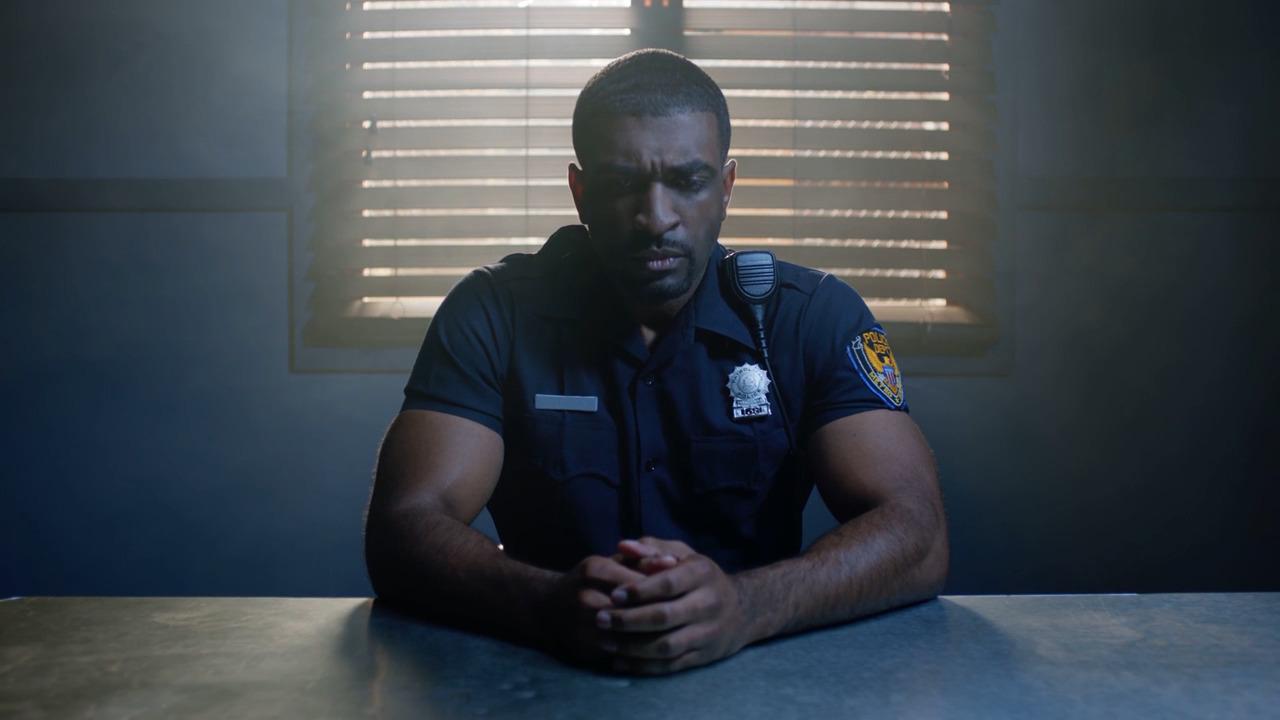
Image taken from the short film Man Down’
7. In your short film Man Down, why did you feel this story needed to be told from the perspective of a black police officer?
Jonathan: One of the films that inspired me to tell this story was The Hate U Give. Once again told from the victim’s perspective, but there was a character in there that rapper/actor Common played. Common plays Carlos, a black cop who happens to be more of a B-character to the story. The film was such an interesting story because Carlos, who is Lisa’s (Regina Hall) brother and uncle to Starr (Amandla Stenberg). So they have a conflict with the police shooting of Starr’s childhood friend Khalil (Algee Smith) and the gang violence in the neighborhood. It’s two opposite ends. Carlos is trying the best he can to stay neutral but also wants to protect his family. That was something that was so interesting and I wanted to tap into it from a different vantage point. I feel like there are enough stories telling the story of the victim.
I was also impacted by the shooting death of Trayvon Martin in 2012. The character of Jerome Davis is a reflection of that same medium of a person in my story and that was actually the first character I wrote when I was developing Man Down. Jerome was first and then I kind of built around him with who the cops were, what their relationships were, and then built out from there.
It’s such an important story to tell with a haunting twist of something following you. Or just the guilt of murdering someone who is your skin folk. Someone you see yourself in and not being an ally to the community.
8. Race has been at the forefront of many conversations in Hollywood. How does race influence your POV as a storyteller?
Jonathan: I’ve been dealing with race throughout my entire life. I think that makes me different from a lot of people who are born and raised in California because I’ve noticed a difference in black people on the west coast. Someone who’s from the South, I’m from Louisville, Kentucky, which is one of the first southern states and I was called the N-word at the age of seven by my next-door neighbor.
I learned quickly that I’m black every day. Even to this day, once I step outside of my apartment, I know I’m black. I know I can’t act in certain ways or that’s going to bring attention. And that the police are often weaponized against us if we “get out of line”.
A lot of times oppression is the lack of inclusion. That’s why there are so many new initiatives and different programs I’ve seen since 2020. Since that year, all my work started getting more traction. I feel like diversity is still just a checkbox right now. It’s not really something that’s being made permanent and anything that we do, from entertainment to jobs. Hopefully, in the next five to six years, it can be something that is permanent but right now, it’s just trendy.
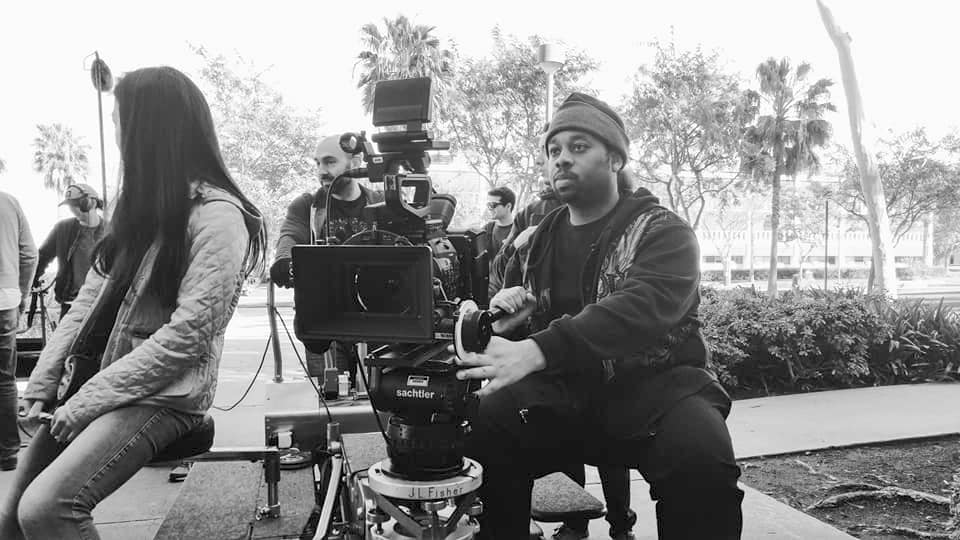
9. Creating so many films every year, how do you find the motivation and keep yourself from being burnt out?
Jonathan: I’m a bit of a workaholic. When I moved to LA. I sacrificed a lot of my personal life. I used to be a person that liked watching too much TV. I had a whole itinerary of shows and programs to watch when I first came to campus. But my busy schedule saw otherwise.
The film school workload was very heavy. It took a lot of my time and that kind of stick-to-itiveness has stuck with me through this journey where I barely watch TV now. I have to make time for down time, me time, personal time to just not stress myself out. Then I divulge that into taking time out to watch TV or binge-watch shows. But then I feel like I’m not doing enough and I’ll go back to the laptop. Every time I finish a project, I’m like, I’m gonna take a break and then I never do. I’m off to the next one or someone hits me up with a new idea.
10. You seem to be a man of many talents in singing, filmmaking, and dancing, so my question is what does art mean to you?
Jonathan: Art is life. Without art, I’d be dead. I’m very connected to art. As an artist, it’s important that we reflect the times. Therefore, that’s a lot of my work. I do my social justice work, I use my platform to not just entertain, but to lighten, uplift and inspire. And that’s my responsibility. Whenever you have a platform, you do have a responsibility to the people.
11. Here’s a fun one. What are some of your favorite films and TV shows?
Jonathan: I’ll give you three films that I got at my top. Jurassic Park is the first one. Because Steven Spielberg was so amazing at creating a classic moment. Just seeing the dinosaurs walk out on the field for the first time. When Ellie and Alan come out and see them. That was just such a moment for cinema and CGI technology. We had not seen that kind of technological advances in cinema ever before. Just to see that as a kid in the cinema was amazing. I’ll never forget that experience. So that really touched me as a storyteller before I even knew I was gonna be one.
My second one would be Terminator Two: Judgment Day. That was amazing just to see. The Terminator turning into liquid metal and killing people. That was once again something we had really never seen before. It just kinda took your breath away, in a sense. It topped the first movie for sure.
My third film would be Kill Bill: Volume One. I love Quentin Tarantino. That’s Spielberg, Cameron, and Tarantino. Some of the greats that I was inspired by.
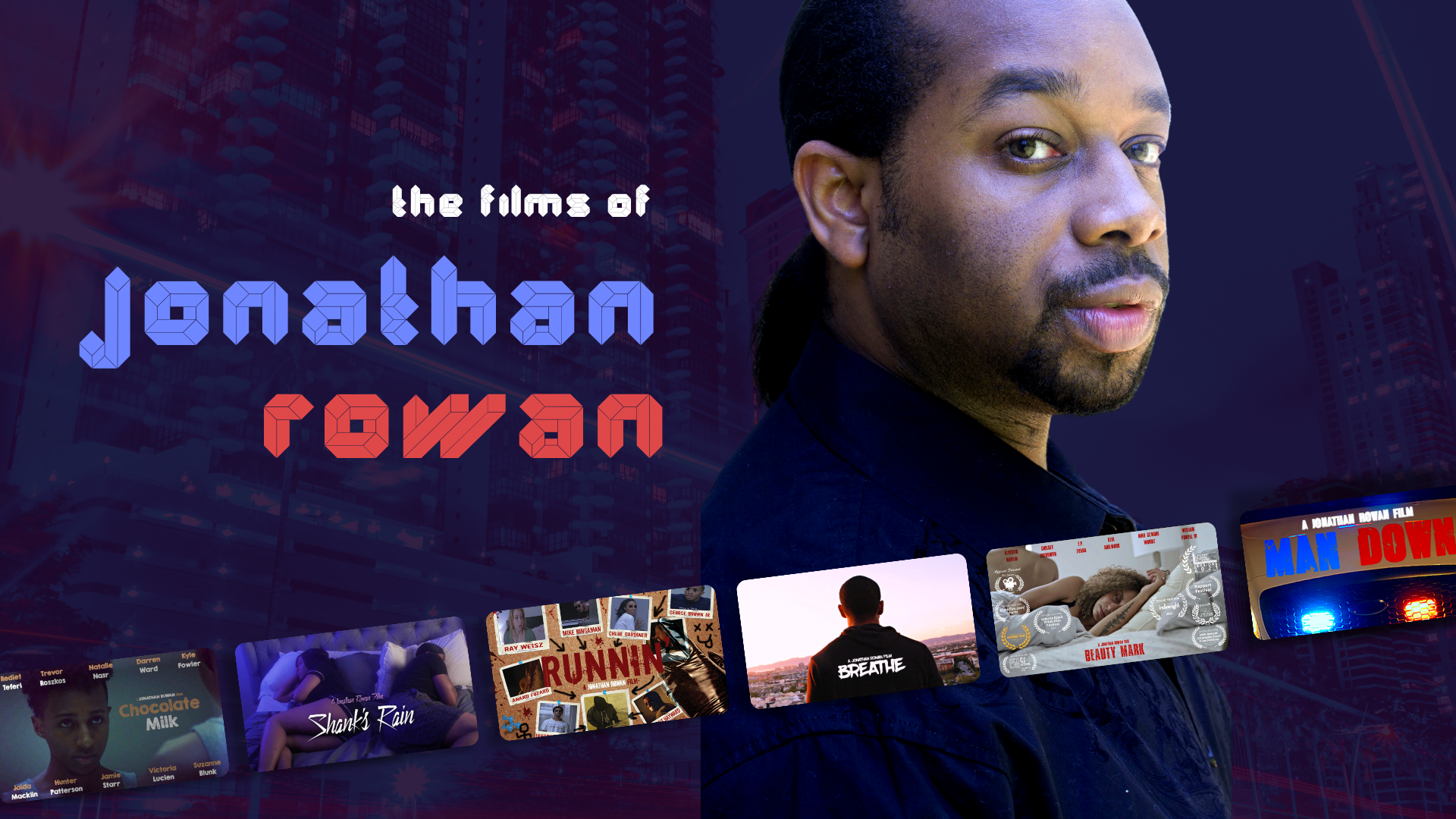
Watch Jonathan Rowan’s Films on Reveel
Jonathan Rowan’s films are timely and relevant, offering a snapshot of our society with all its complexities. His films can take on tough topics, inspire us to be the best version of ourselves or just be all-out entertaining. This playlist of cinematic gems carries a similar style and gives us a glimpse into modern life as it exists today.
Watch Jonathan Rowan Presents Here





